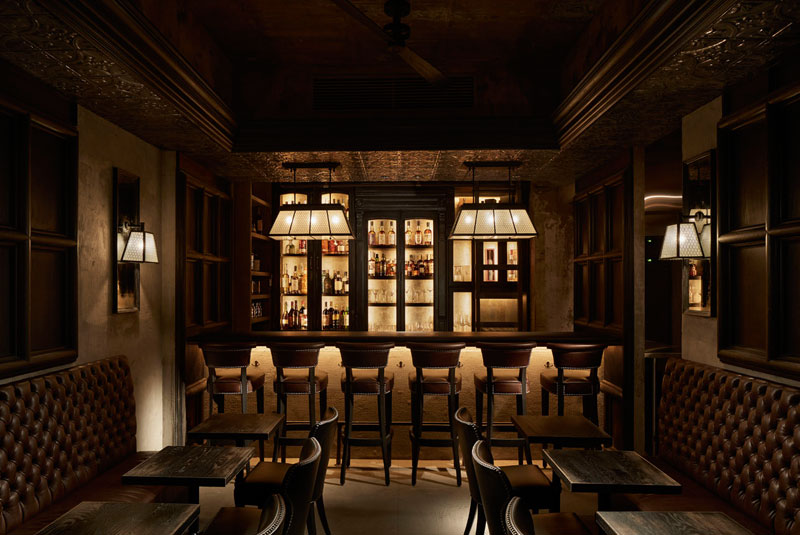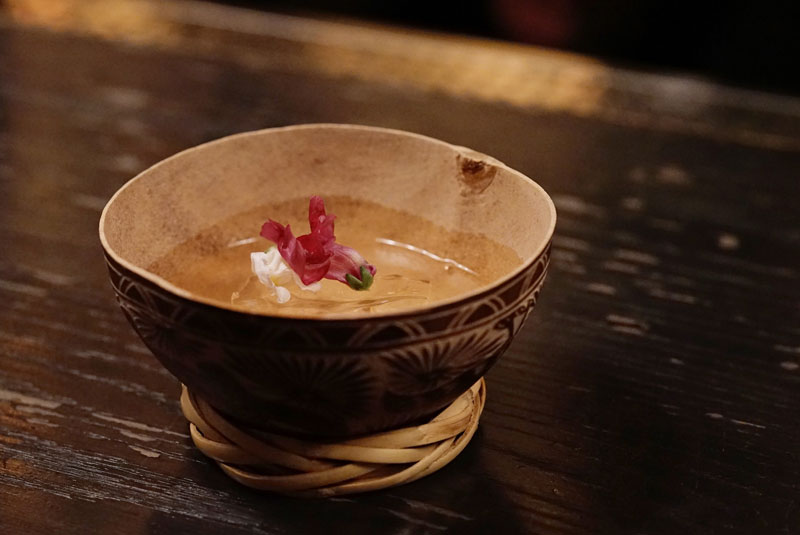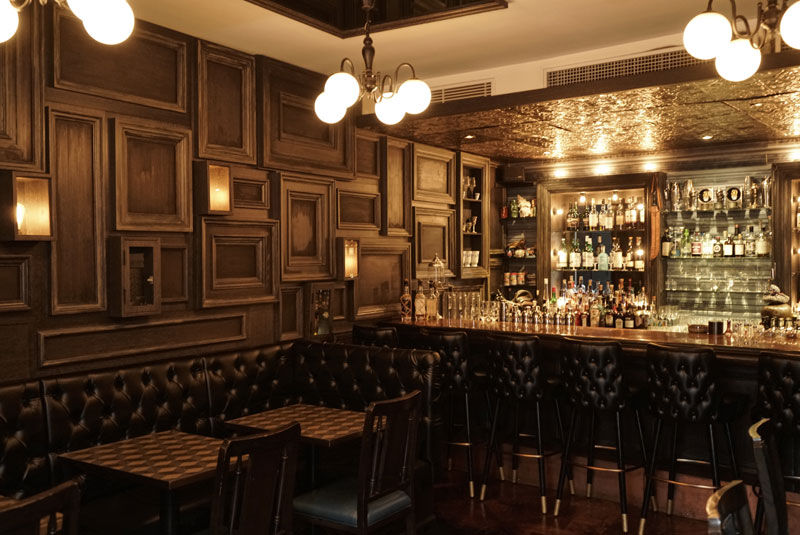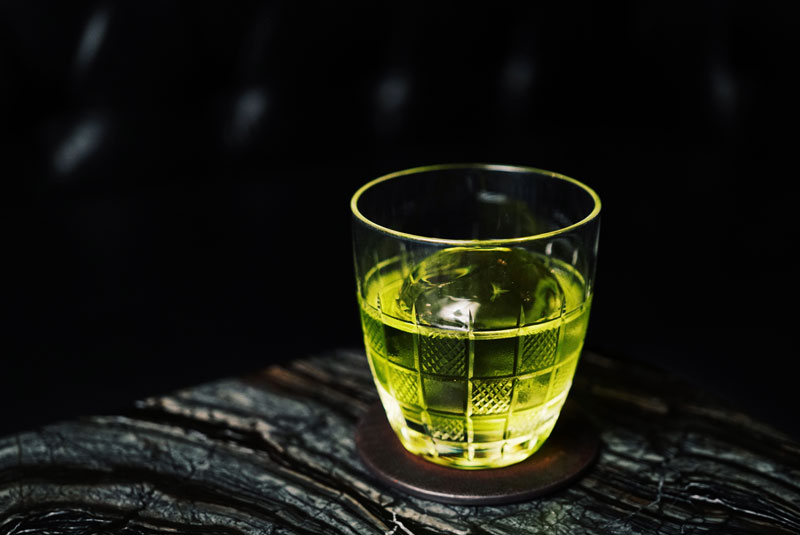Following his announcement as the Roku Industry Icon as part of Asia’s 50 Best Bars 2021 virtual ceremony on 6th May, Shingo Gokan meets 50 Best to take a quick look back at his glittering career. But, as the Japanese cocktailian is very keen to point out, there is plenty more yet to come
Shingo Gokan is delighted, for sure, to be named the Roku Industry Icon 2021. He just has some questions. Mainly: is it not a touch premature? “I thought this was for legendary people,” he says. “I’m still only 38. I don’t think I’m old enough.”
Despite all his success, all the titles and trophies he’s won, despite rising to the top of the bar scenes in three very different countries, you can’t help feeling that Gokan has a lot more to give. Consider how adroitly he adapted to the Covid-19 pandemic, which really could have crushed him. “Seventy percent of our guests [at The SG Club in Tokyo] were tourists,” he says. “We lost them all.” And he had only just launched SG Shochu, a project to rebrand Japan’s native distillate as a premium cocktail ingredient, when the drinks sector began to deflate.
But Gokan thrives in uncomfortable times and says the pandemic spurred his innovation: “It's like when random guests come in and say ‘Can you make me a drink, high abv, but sweet, but where you don’t feel alcohol, and it has to be Instagrammable’, and you have to come up with an idea. This is kind of the same thing.”
Inside The SG Club in Shibuya, Tokyo
When Japan's authorities asked bars to take last orders at 7pm, the exact hour at which Gokan opens two of the three floors of his Tokyo spot, he went out to buy some plywood, boarded up the premises, and affixed a mock real-estate sign that read ‘Seeking Tenants’. He then posted a wink on social media about how it was 100 years since the birth of the speakeasy. Inside, menus disguised as real-estate listings offered drinks such as Prohibition G-Man, Bathtub Shochu and Giggle Water.
In February 2020 he launched his shochu, a collaboration with three top distillers that was two years in the making. That was the same month Japan introduced the first travel restrictions. Gokan abandoned his marketing plans and launched an Instagram-based home cocktail contest open to all. It was a masterstroke that had amateurs and professionals alike buying his bottles, learning to mix with them, and posting about it.
He also had a pocketful of government money to promote his shochu internationally. Since he was grounded in Tokyo, he used the funds to send bottles to 200 of the world’s top bartenders. Soon enough he had a who’s who of bartending spreading the message on social media.
This was the point at which all the strands of his story came together. He had been born in Shibuya, just blocks from where The SG Club now stands, though his family soon decamped to Kawasaki, the gritty city next door. That’s where he first found work as a bartender, in a large restaurant bar fixing sweet cocktails with plenty of milk and liqueurs, then in a smaller, casual joint called Potluck that still exists just across the Tama river from Tokyo. He says his Potluck stint taught him how to manage a bar. More importantly, though, it was where a customer delivered the prophetic (though surely throwaway) line: “Hey, you should go to New York, you’d probably be very successful.”
The SG Club's cocktail 'Amazon to Kagoshima' (imo, guava, vetiver, cacao)
That was all the convincing he needed. “I was like: ‘New York sounds good’. So I decided to move there.” Back in those pre-YouTube days, everything he knew about American bartending came from the movies, so he assumed he had to learn to flair, but quit “because it was too tough”. He wanted something to help him stand out and settled on tea ceremony because it was so Japanese and sherry, just because he liked it. Little did he know how much those choices would pay off.
One thing he hadn’t learned was English, so when he enquired about work at the Japanese-styled Angel’s Share bar, they sent him packing. He fell back on a restaurant gig where, as the junior employee who couldn’t speak the local language, he took home $16 a day from the tip jar. But the Angel’s Share team was keeping tabs on him and six months later offered him a job.
Soon the entire Angel’s Share team left to start a new bar and asked him to join, but he had a better idea. He stayed put, was promoted to become the bar’s top dog, and rebuilt the team. “That was one of the toughest moments in my life,” he recalls. “I still didn’t speak good English; I had a bunch of new guys and the bar was busy.” After two years of hustle, he was joined by Atsushi Suzuki who became his trusted lieutenant and remains so to this day.
In 2010, Gokan was invited to take part in his first US-based cocktail competition. In the New York heat he found himself competing against Steve Schneider of Employees Only who, he recalls, was making a racket in the hushed church venue. “He was crazy,” says Gokan. “Tattoos over his entire body, swinging a hammer and crushing ice on the floor. I thought he was the craziest guy in the room.” He couldn't have imagined he would open a bar – The Odd Couple – with that guy in Shanghai eight years later.
Speak Low's entrance is hidden behind a slide-away bookcase in a cocktail equipment shop
Gokan entered the contest brimming with overconfidence. “I thought I’d win for sure,” he says, but lost in the very first round. A year later, second attempt, with a cocktail utilising both sherry and matcha, he won and the offers for work poured in. He traveled the world as a judge, consultant or seminar host, and then someone asked if he’d like to open a bar in Shanghai. “Shanghai sounds good,” he said. And off he went.
Speak Low opened in 2014 with a speakeasy theme that he was determined should be authentic. Word had to spread organically. That meant a quiet, nervy first few months, but 2014 was the year WeChat [the China-based social media platform] hit 500 million users and supercharged the word-of-mouth process. Soon enough, seats in the inner sanctums of the multi-level bar became hard to snag.
“I think Speak Low changed the Chinese bar scene,” he says. “There was no global standard-level bar there [before Speak Low].” Two years later he upped the ante with Sober Company, a 250-seat restaurant, cafe and cocktail bar. Once again it was a tough start: “People didn’t understand what is aperitivo, what is digestivo, why we would have to drink in a cafe. But little by little they understood and Sober Company made it into Asia’s 50 Best Bars and The World’s 50 Best Bars. Actually, without 50 Best nothing would have happened. So thanks for that.”
Atsushi Suzuki was running Sober Company when his wife gave birth to twins and he decided it was time to go home to Japan after eight years abroad. Gokan’s SG Group agreed to build Suzuki a bar in Tokyo, but while Gokan was working on the concept he started thinking it might suit him too. The SG Club opened in 2019 with both men behind the bar and this year its performance peaked when it landed the No.3 spot in the list of Asia’s 50 Best Bars.
Sober Company's cocktail 'Local happiness' (gin, lapsang, pistachio, cacao butter, orangette)
Once again, says Gokan, people weren’t quite ready for him. “In Japan, they didn’t really know how to enjoy the bar,” he says. He decided that his model, which differed from the traditional Japanese bar in almost every detail, wasn’t going to convert existing bar-goers so he had to develop new ones. “I wanted to reach people who don’t go to bars so I decided to go for the fashion industry, music industry, food industry and wine industry. And we had so many tourists, because everybody sees the 50 Best awards.”
At this point it would have been impossible for him to devise all the drinks for his burgeoning empire, so he took on a creative director-style role. “I basically come up with the idea and tell my head bartender to decide the recipe and ratio.” Sometimes, he’ll give them an ingredient that he’s just discovered. Other times, he’ll eat a dish and task the bartenders to come up with a liquid equivalent. Sometimes it’s just a concept, such as ‘East meets West’.
2021 finds Gokan stuck in Tokyo, so he’s just opened a booze-forward izakaya. “It’s a new concept for the Japanese. There’s not been a cocktail izakaya before,” he says. “We are bartenders so we can definitely make a better drink than a real izakaya.” He’s just launched a glassware range which includes a Martini vessel designed to make you look like James Bond. “Bond always grabs the bowl, never the stem, so you don’t need a stem.”
And then there’s another new venue: “I’m opening a wine cocktail bar called Swirl. We’re not going to have any bar tools, no spoons, no shakers, just decanters to swirl the drinks.” Wine cocktail culture has been stuck since the advent of sangria, wine cooler and Kir, he says, so a shake-up is long overdue.
He’s an icon alright, but Shingo Gokan really is only just getting started.
Missed the live event? Catch up on the virtual ceremony and check out the full results for Asia’s 50 Best Bars 2021, sponsored by Perrier. To stay up to date with all the latest bar news from around the globe, follow us on Instagram, like on Facebook and subscribe to 50 Best Bars TV YouTube channel.

